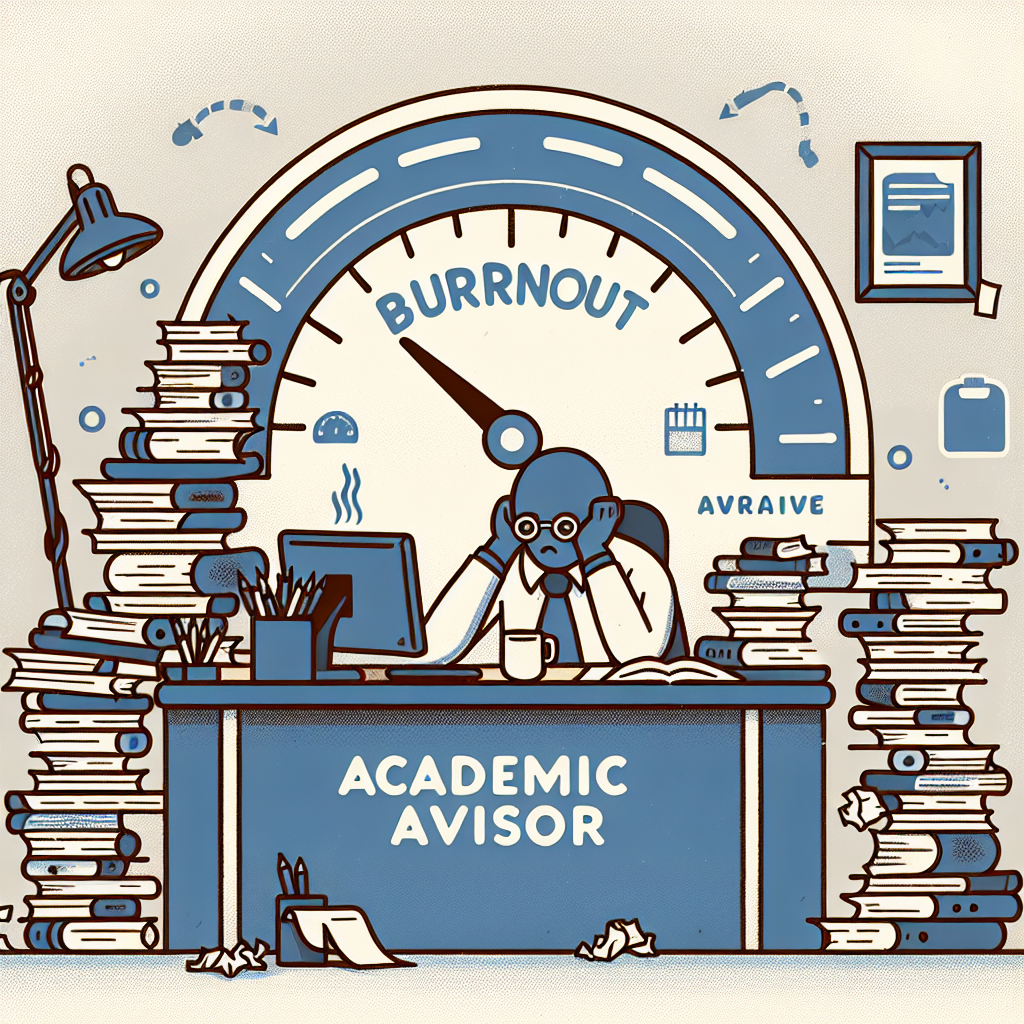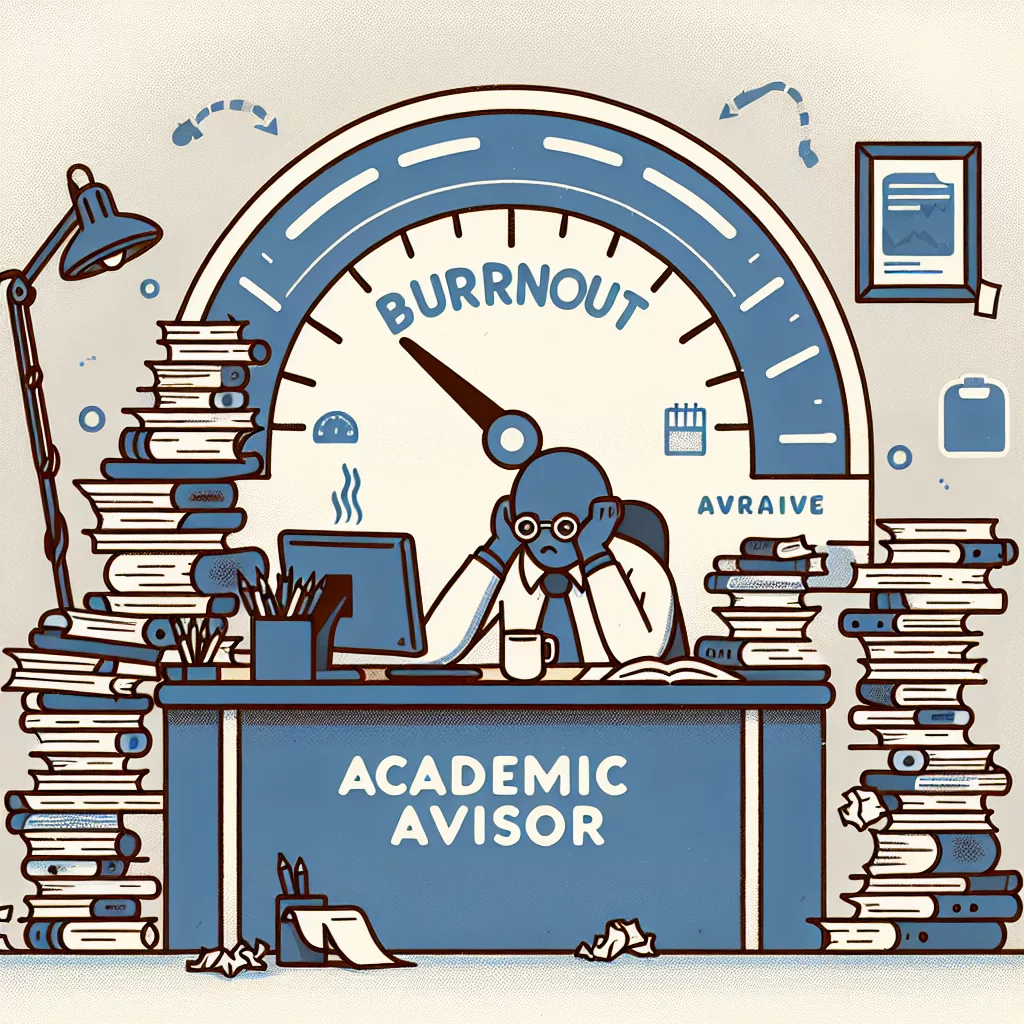The risk rate of burnout in Academic Advisors is significantly high, fueled by constant student interactions, complex problem-solving, and limited resources.

- High workload with numerous student appointments and meetings.
- Emotional investment in students’ personal and academic challenges.
- Pressure to meet university performance and retention metrics.
- Frequent exposure to students’ emotional and mental distress.
- Role ambiguity due to varied institutional expectations.
- Lack of career advancement opportunities causing stagnation.
- Limited resources and support for resolving complex issues.
Data on career burnout statistics for Academic Advisors seem to suggest an overall burnout level of moderate.
Reasons Academic Advisors burnout
According to the science to date there are key reasons people burnout at work. Here’s our top reasons why Academic Advisor in the Education category has a burnout risk of Moderate:
Emotional Labor: Academic advisors often engage in significant emotional labor, as they are required to provide constant support and guidance to students. This role demands patience, empathy, and understanding, which can be emotionally draining over time.
High Workload: The workload for academic advisors can become overwhelming, especially during peak times like enrollment periods or graduation preparations. Administrative tasks, such as paperwork and reports, add to the pressure, making it challenging to manage workloads effectively.
Lack of Resources: Many advisors face a shortage of resources, such as insufficient staff or inadequate software tools, which can hinder their ability to perform their duties efficiently. This scarcity can lead to increased stress and dissatisfaction with the job.
Role Ambiguity: Advisors often encounter unclear job roles and expectations, leading to confusion and frustration. When the boundaries of their responsibilities are not well-defined, it can result in stress as they try to balance various duties.
Underappreciation: Despite their critical role in student success, advisors frequently feel undervalued by their institutions. This lack of recognition can lead to decreased job satisfaction and motivation.
Constant Change: The educational environment is continuously evolving, with changes in policies, curriculums, and technologies. Advisors must constantly adapt, which can be exhausting and contribute to burnout.
Limited Career Advancement: Opportunities for professional growth and promotion can be limited for academic advisors, leading to career stagnation. This can result in diminished engagement and increased burnout.
Burnout rate data for Academic Advisor/Education
Burnout among academic advisors and in the field of education is an area of growing research and concern. Academic advisors often face unique stressors, including managing large caseloads and navigating institutional expectations. Studies indicate that these stressors can lead to emotional exhaustion and a diminished sense of personal accomplishment.
Reliable data on this topic can be found in academic journals and organizational reports. The National Center for Education Statistics provides periodic updates on professional workload and job satisfaction in education (https://nces.ed.gov). Additionally, the Chronicle of Higher Education often discusses trends affecting educational professionals, including stress and burnout (https://www.chronicle.com).
If you are an academic advisor, focusing on self-care and institutional support can help mitigate these challenges. While awareness is increasing, current data still shows a need for more extensive research into effective interventions.
Do you have experience of Burnout as a Academic Advisor or in Education?
Share your story about Academic Advisor burnout on our share your story page.
Burnout in Education
Career Burnout Rates > Burnout in Education > Academic Advisor Burnout


